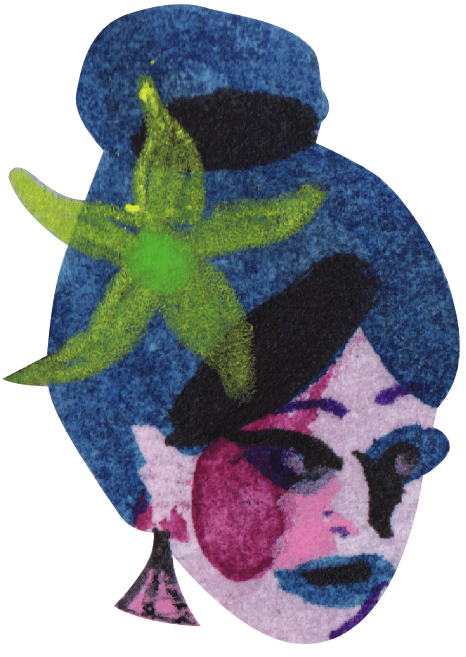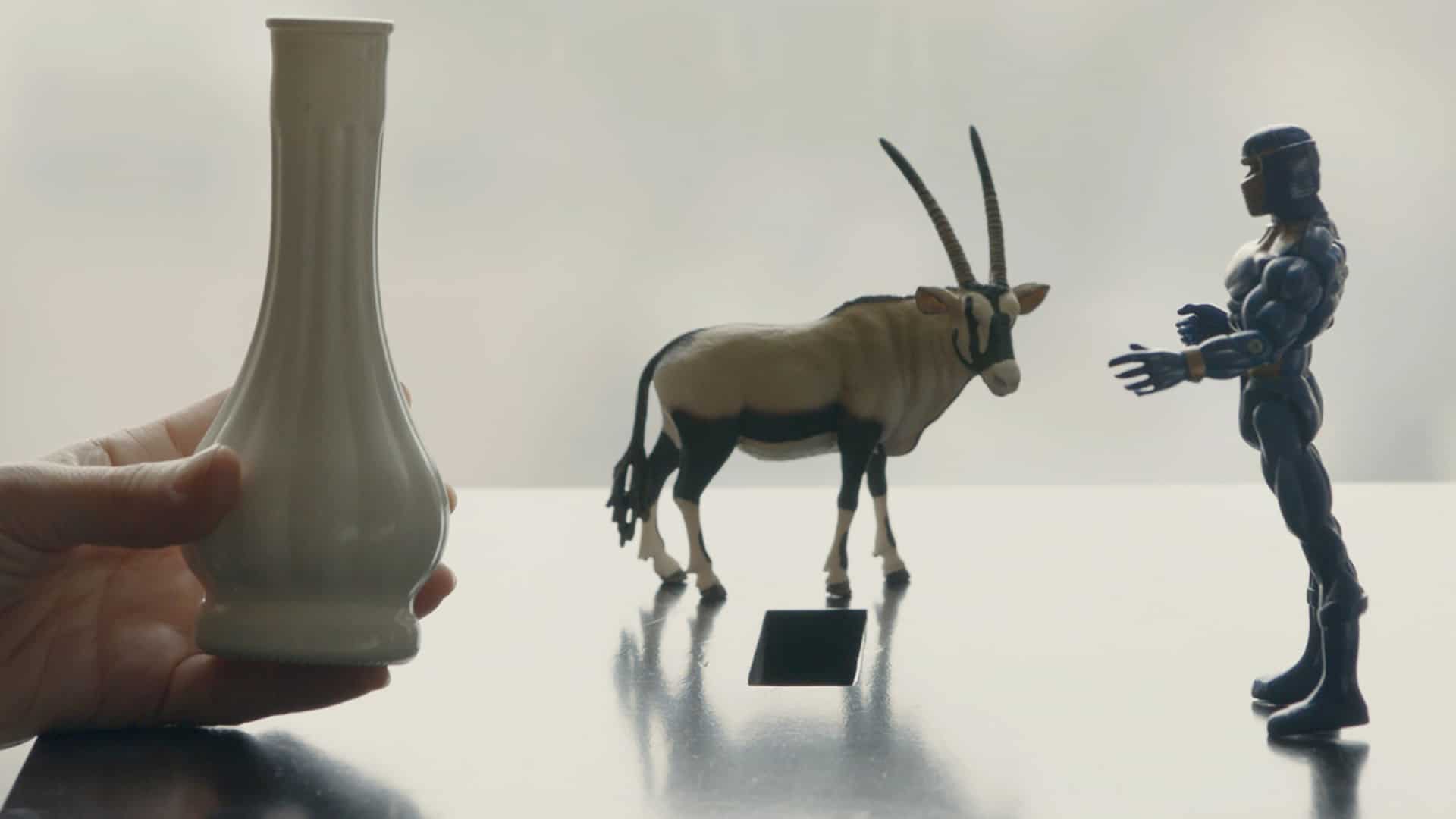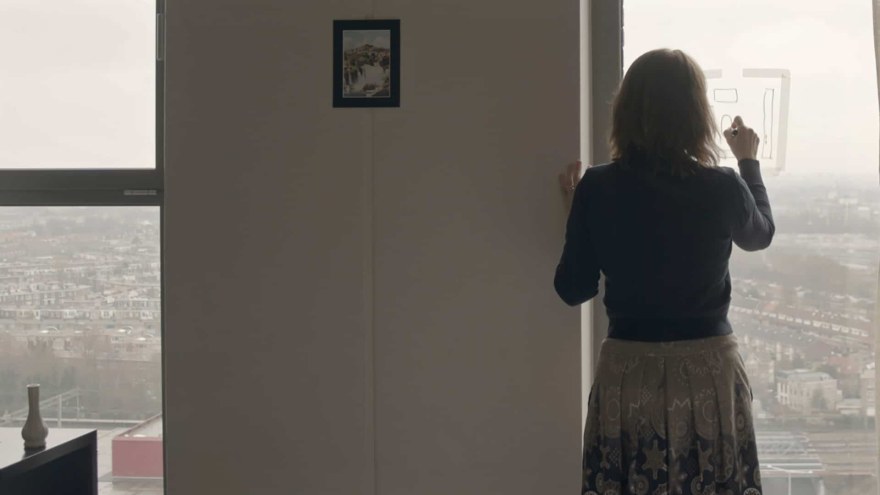Dernier verre avec In Flow of Words (Dans le flux des mots)
Entretien avec Eliane Esther Bots, réalisatrice de In Flow of Words (Dans le flux des mots)
 Comment est né In Flow of Words ?
Comment est né In Flow of Words ?
Ça vient d’une rencontre fortuite avec une des interprètes, Alma, pendant un festival de cinéma à La Haye, ma ville natale. Elle se tenait derrière une caméra et en tant que collègue cinéaste je l’ai abordée pour lui demander ce qu’elle filmait. Dans le fil de la conversation, elle s’est mise à évoquer son passé professionnel d’interprète au Tribunal pénal international pour l’ex-Yougoslavie à La Haye, aux Pays-Bas. L’entendre parler de cette expérience m’a profondément touchée. Je n’en revenais pas de la complexité de sa position d’interprète, de la dureté de ce contexte. Je pense que c’est à ce moment-là que je me suis dit qu’il fallait en faire un film.

On met toujours l’interprète dans la position de « celui qui parle ». Des flots de paroles entrent dans leurs esprits, traversent leurs corps et en ressortent dans une langue différente. Ils doivent parler à la première personne, c’est ce qui fait dire à l’un des interprètes dans le film : « Soudain tes pensées sont mes pensées, je suis toi. » Les interprètes sont souvent amenés à travailler sur des témoignages extrêmement touchants, tragiques. Et en même temps, ils sont tenus de rester neutres et ne sont pas autorisés à exprimer des émotions. Comprendre la position si particulière et éprouvante des interprètes m’a fait ressentir le besoin de faire connaître ces personnes et leur travail. Notamment parce qu’ils utilisent rarement leur propre voix pour parler de leur propre expérience. Le sujet m’a paru urgent et précieux et dès le départ une relation forte s’est créée entre les interprètes et moi. En somme, je n’ai pas vraiment eu de question à me poser quant à mon envie de travailler sur ce film. Je voulais le faire, tout simplement !


Nous avons bien sûr évoqué les problèmes que pourraient leur poser leur participation ou leur collaboration, et le sujet a émergé dans plusieurs conversations, mais ça reste une question à laquelle il m’est difficile de répondre : c’est aux interprètes qu’il faut la poser. Notamment parce que les expériences peuvent changer au fil du temps, en cours de tournage, et aussi parce qu’elles relèvent parfois de l’intime. Une chose dont je suis sûre, c’est que ce sont les histoires qui veulent qu’on les raconte qui m’intéressent, celles qui ont besoin d’être « déballées », ainsi que ceux qui ne demandent qu’à les transmettre, leurs alliés. J’avais aussi le sentiment, confirmé depuis en parlant avec eux, qu’Alma, Pops et Besmir voulaient partager ce qu’ils avaient vécu, mais ne ressentaient pas forcément le besoin d’y prêter attention après-coup. Par exemple, Alma me disait : « Je pense n’avoir jamais parlé de ça autant que ce que j’en parle maintenant avec toi. Je veux dire, qui a envie d’écouter ces histoires horribles ? Personne. » Maintenant, six mois après la première projection, les interprètes sont devenus de vrais ambassadeurs du film. Et c’est très gratifiant.

Fanstasma Neon de Leonardo Martinelli, vu au festival de Locarno, où j’étais pour la première de In Flow of Words, et Handbook de Pavel Mozhar, diffusé cette année à l’IDFA d’Amsterdam (je faisais partie du jury de la compétition court-métrage). Deux films très différents l’un de l’autre, mais je leur trouve pourtant quelque chose en commun. En expérimentant avec la forme cinématographique, les créateurs sont parvenus à faire des œuvres qui en disent long, qui vont au-delà de la simple transmission d’information sur les thèmes abordés. Je me souviendrai longtemps de ces films !

Un bon film me touche sans que je le comprenne complètement du premier coup. Je continue à y penser quand je sors de la salle de projection (ou quand je referme l’ordi).
Pour voir In Flow of Words, rendez-vous aux séances de la compétition internationale I11.








